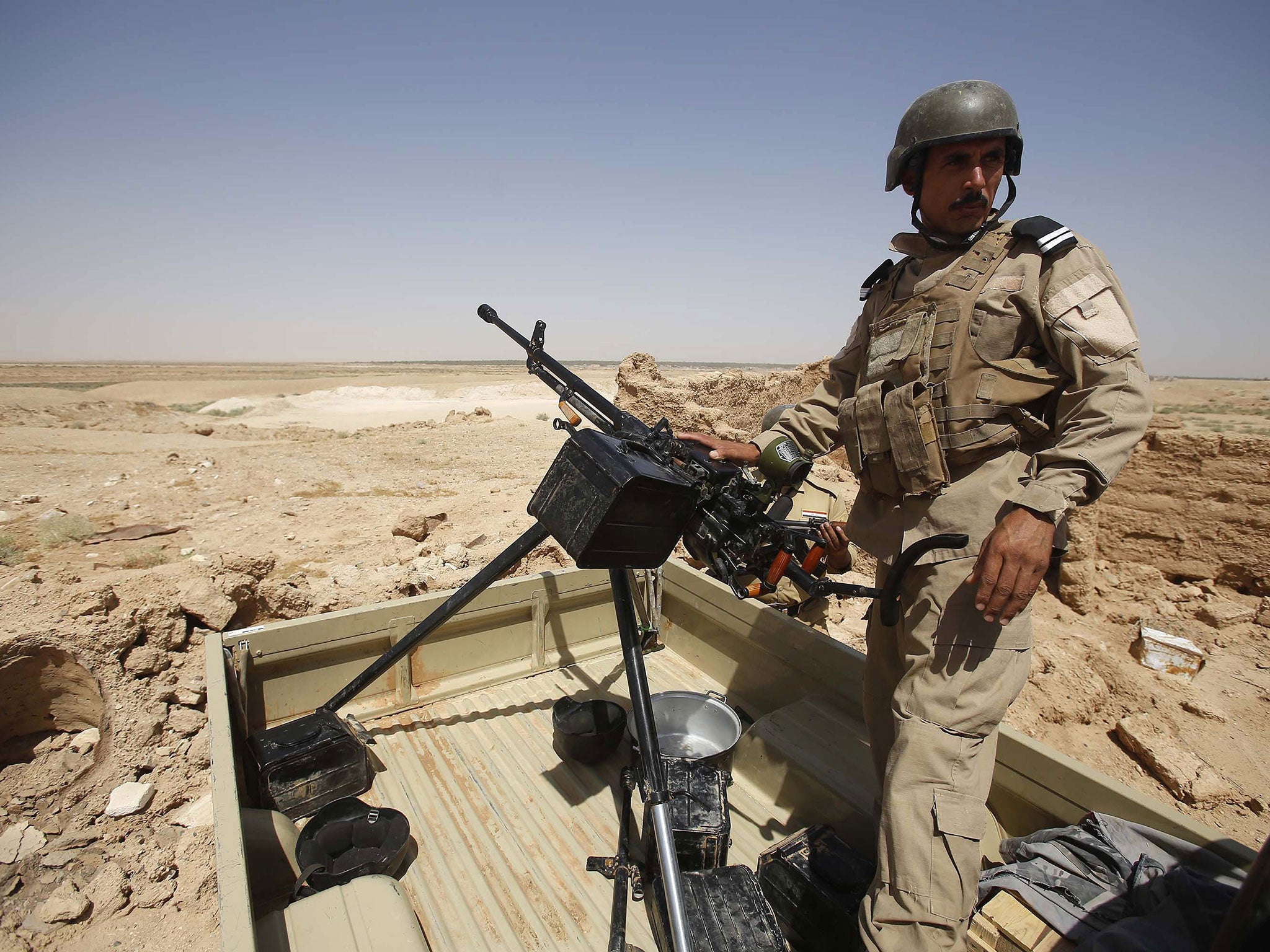Iraq forces battle rebels in Saddam Hussein's home town of Tikrit

Your support helps us to tell the story
From reproductive rights to climate change to Big Tech, The Independent is on the ground when the story is developing. Whether it's investigating the financials of Elon Musk's pro-Trump PAC or producing our latest documentary, 'The A Word', which shines a light on the American women fighting for reproductive rights, we know how important it is to parse out the facts from the messaging.
At such a critical moment in US history, we need reporters on the ground. Your donation allows us to keep sending journalists to speak to both sides of the story.
The Independent is trusted by Americans across the entire political spectrum. And unlike many other quality news outlets, we choose not to lock Americans out of our reporting and analysis with paywalls. We believe quality journalism should be available to everyone, paid for by those who can afford it.
Your support makes all the difference.Iraqi forces backed by tanks and helicopter gunships have started battling insurgents in Saddam Hussein's home town of Tikrit, one of two major cities seized by Sunni militants during a rapid advance across the north earlier this month.
The government received a boost with the arrival in Baghdad of five Sukhoi 25 warplanes purchased second-hand from Russia. The aircraft is designed to provide close air support to ground forces and to destroy mobile targets.
Iraqi air force commander Anwar Hama Amin said the military is "in urgent need of this type of aircraft during this difficult time".
"These jets will enter service within a few days - the coming three or four days - in order to support the units and to fight the terrorist ISIL organisation," he said, referring to the al Qaida breakaway Islamic State of Iraq and the Levant, which has spearheaded the Sunni militant offensive.
The planes could be deployed in the fight for Tikrit, a predominantly Sunni city of more than 200,000 some 80 miles north of Baghdad where anger towards Iraq's Shiite-led government runs deep.
There were conflicting reports as to how far the military advanced in its initial thrust toward the northern city. Residents said militants were still in control of the city by nightfall yesterday while Iraqi security officials said troops had reached the outskirts and the provincial governor said they had pushed into the city itself.
The government has presented the campaign as a rebound following weeks of demoralising defeats at the hands of insurgents. The militants' surge across much of northern and western Iraq has thrown the country into its deepest crisis since US troops withdrew in December 2011, and threatens to cleave the nation in three along sectarian and ethnic lines.
If successful, the Tikrit operation could help restore a degree of faith in the security forces - as well as embattled Prime Minister Nouri al-Maliki, who is fighting to keep his job.
Yesterday's fighting began before dawn with helicopter gunships carrying out airstrikes on insurgents who were attacking troops at a university campus on Tikrit's northern outskirts, Iraqi military spokesman Qassim al-Moussawi said. The government forces had established a bridgehead on the university's sprawling grounds after being airlifted in the previous day.
Sporadic clashes continued throughout the day at the university. At the same time, several columns of troops pushed north toward Tikrit from Samarra, a city along the banks of the Tigris River and home to an important Shiite shrine.
By sundown, Ahmed Abu Ragheef, a commander in the Salahuddin Operational Command, said a column of troops had reached the edge of Tikrit, while another had secured an air base that previously served as a US military facility known as Camp Speicher.
The governor of Salahuddin province, Ahmed Abdullah al-Jabouri, told The Associated Press that troops pushed into Tikrit itself, reaching the provincial council building.
However, residents reached by telephone said militants were still in control of Tikrit and patrolling the city's streets.
They confirmed the clashes around the university, and reported fighting between the Islamic State and Iraqi forces to the south east of the city as well. Some residents described black smoke rising from a presidential palace complex located along the edge of the Tigris River after army helicopters opened fire on the compound.
AP
Join our commenting forum
Join thought-provoking conversations, follow other Independent readers and see their replies
Comments